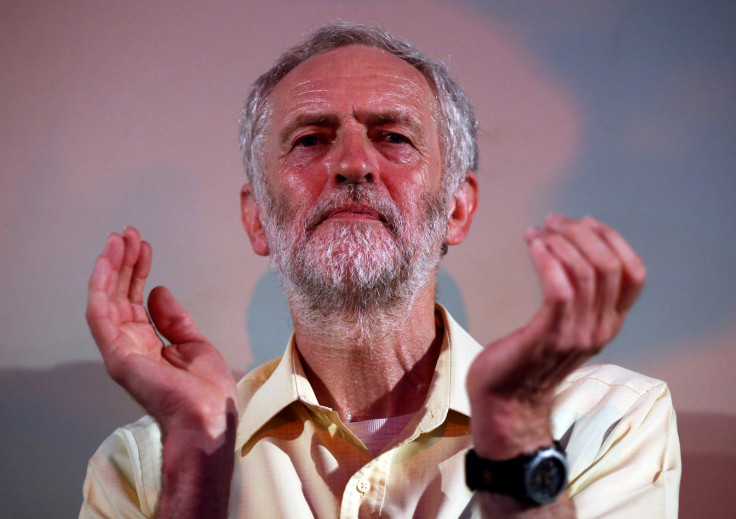Jeremy Corbyn and the inequality myth: Sorry Labour lefties, your new messiah will not help the poor

Barring a major upset, Jeremy Corbyn will soon be leader of the Labour Party. And unless he and his team fancy one or two years of misery followed by a swift exit, he is likely to focus on the one big issue where he and the public seem to basically agree: that inequality is bad, we've got too
much of it, and someone needs to do something to get less of it.
The trouble is that Corbyn, the left and the Great British public are all basically wrong about this. Inequality doesn't actually matter in and of itself, and reducing it is often at odds with things that do matter, like reducing poverty.
What's more, people's perceptions of inequality don't tend to match up with reality. So even the idea that we should reduce inequality just to stop people from fretting about it falls at the hurdle that it wouldn't actually stop anyone from worrying.
Many people use inequality as a byword for poverty, which certainly is something we should care about. But inequality – the gaps in wealth between the richest and poorest, or the dispersion of income across a society – is actually a very bad proxy for poverty.
During the Great Recession, as incomes, wealth and living standards fell across the board, inequality actually fell to levels unseen for two decades. Poverty levels fell but, according to the Institute for Fiscal Studies, "this is only because the poverty line fell in line with average incomes". In other words, relative poverty fell even though everyone was worse off because people at the top lost an even greater fraction of their income than those at the bottom.
And, of course, it works the other way too: as living standards rise, inequality can too, if the rich rise more rapidly than the poor. Since the relative poverty line moves with the median income level, a situation where everyone is considerably better off than before can still look as if the
numbers of the "poor" are growing.
Essentials for the 21st century
This old critique seems to have changed a few minds among the more thoughtful members of the left. The Joseph Rountree Foundation's Minimum Income Standard is based on surveys that ask people what things you'd need to have a decent standard of living in Britain today and calculates its poverty line according to that.
Today a mobile phone would be essential, for example, where 15 years ago it probably wouldn't have been. Adam Smith, who realised our idea of poverty changed over time would have approved. But this is a very different idea of inequality to the usual rich vs poor mechanic favoured by Corbyn and others like him.
In countries where inequality was generally thought to be high, more people supported government redistribution. But demand for redistribution bore no relation to the actual level of inequality
Globally, inequality has been falling for decades because poor countries such China and India have grown much, much more rapidly than the developed world. But within-country inequality in these countries is often rising, because it is the middle classes that benefit most from this growth. Even though poor people are still getting substantially richer in these places, anyone looking at equality statistics would conclude that things are getting worse. That's nonsense.
The authors of The Spirit Level take a slightly different approach to try to salvage the idea that inequality matters. Drawing on cross-country comparisons, they argue inequality leads to social polarisation, crime, and unhappy, unhealthy people.
Christopher Snowdon has already demolished the substance of these claims, pointing out they rely on highly selective choices of countries and statistical measures of inequality. If you add in some of the countries they left out, or use more conventional measures of inequality than ones they choose, the relationships between inequality and health, happiness or social cohesion disappear. One reason for this might be because actual levels of inequality in a country have pretty much no bearing on people's perceived levels of inequality there.
Perceptions of inequality
Which brings us to the last argument for caring about inequality: even if it doesn't really matter, the simple fact that people care about it means that we should try to reduce it.
The problem with this argument is people's perceptions of inequality bear almost no relation to actual levels of inequality in their societies at all. A recent paper asked people to characterise the shape of the society they lived in, choosing from one of five diagrams with accompanying
descriptions. Did your society look like "a pyramid, with a small elite at the top ... and most at the bottom"? Was it a Type D, "a society with most people in the middle"? Or something else?

Forty countries were surveyed and responses differed significantly – 68% of Latvians chose Type A, while 2% of Danes did. But in almost every country, a majority got it wrong. A majority of people surveyed chose the correct society diagram in only five countries out of 40 (a minority, 40%, of
Britons got it right), and on average only 29% of respondents chose correctly.
That's just 6.5 percentage points higher than would get it right if they had been guessing entirely blindly. In case you're wondering, Britain is a Type B, which 40.2% guessed correctly. 21.1% guessed type D, 18.2% type C, 13.4% type A, and 3.4% type E.
According to the authors of a paper on this survey: "In countries where inequality was generally thought to be high, more people supported government redistribution. But demand for redistribution bore no relation to the actual level of inequality."
All this suggests that people don't really know much about how unequal their country is, so reducing inequality won't make them happier. If the only reason to care about inequality is that it makes people unhappy, we'd be better off spending our time talking about how wonderfully equal Britain is than actually trying to make that so.
None of which might bother Jeremy Corbyn, who does not seem to have changed his mind about anything since the late 1970s. But before the rest of us wring our hands and say well, yes, this Corbyn fellow is a bit strange, but perhaps he does have a point about inequality, it might be worth asking whether inequality matters at all.
Sam Bowman is deputy director of the Adam Smith Institute, a libertarian think tank.
© Copyright IBTimes 2025. All rights reserved.






















